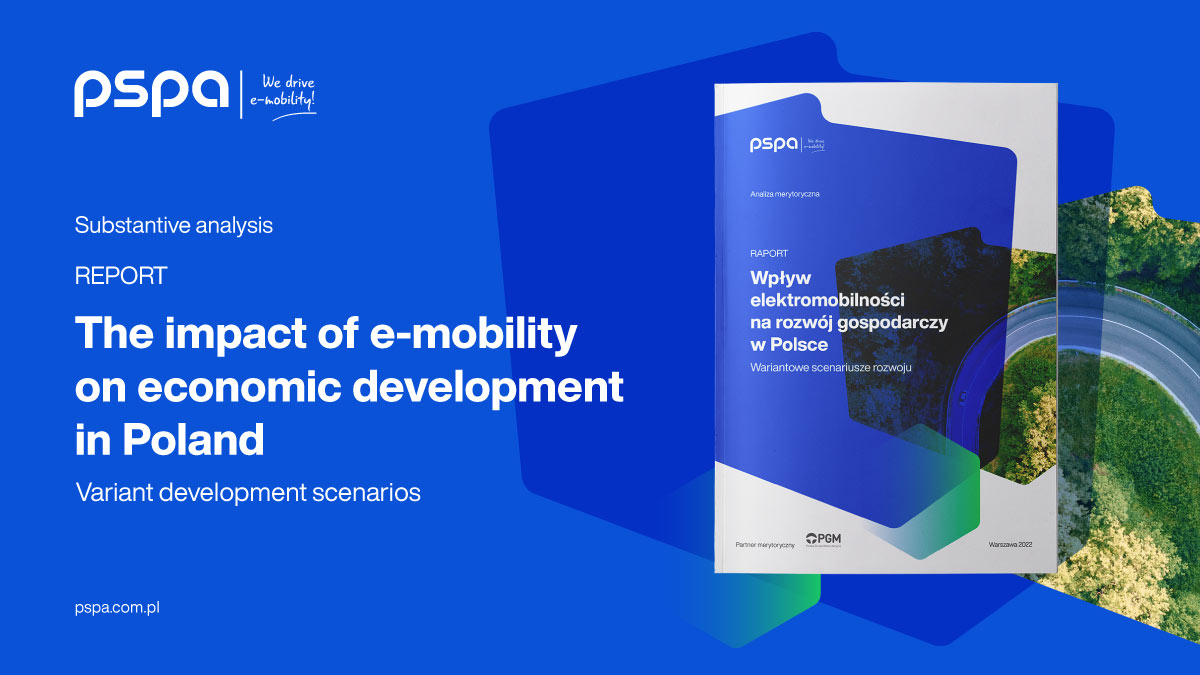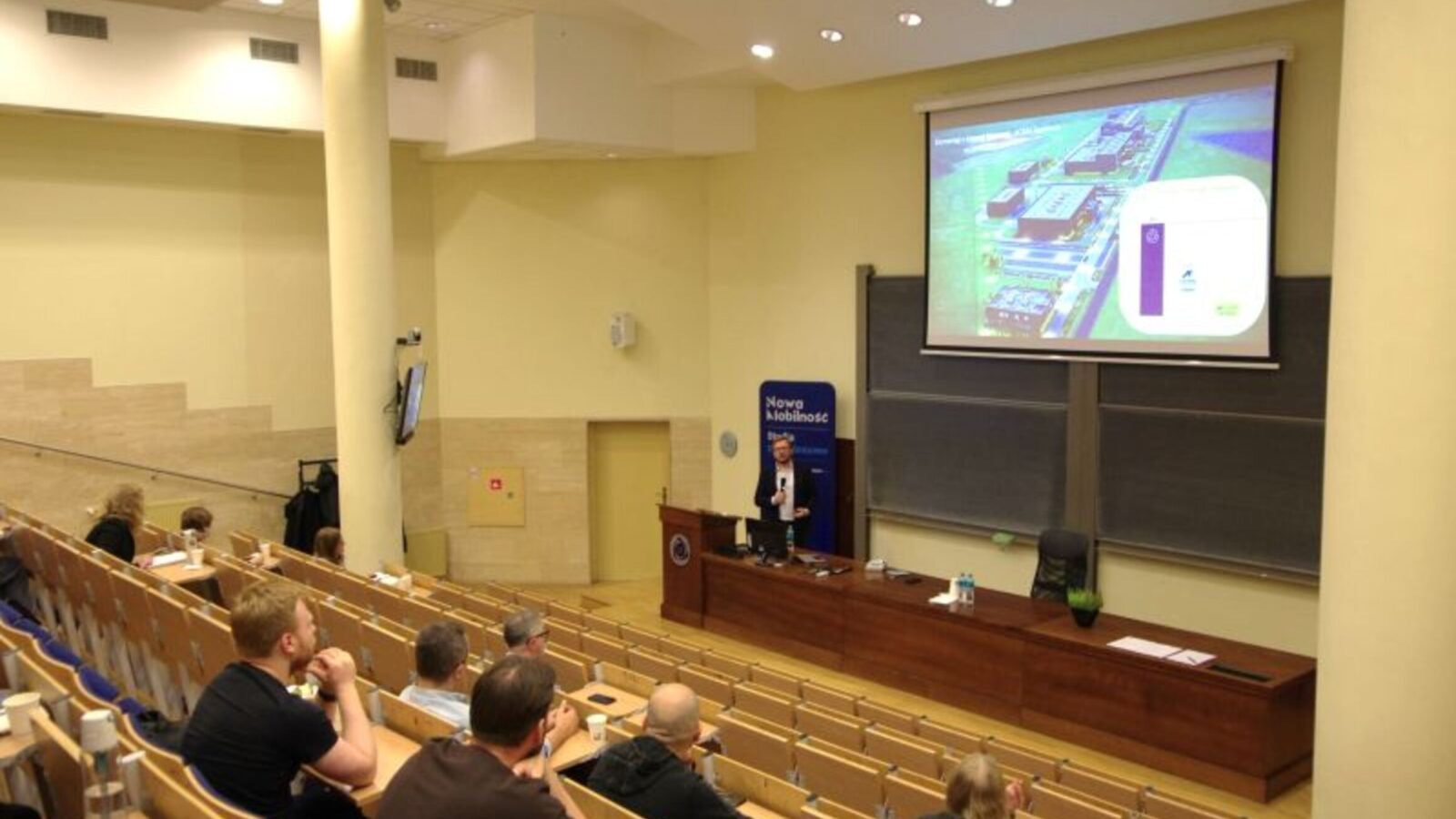The latest report from the Polish Alternative Fuels Association (PSPA) indicates that the share of e-mobility industry in Poland’s GDP could increase to nearly 6% within the next three decades. In order to take full advantage of the opportunities associated with the transformation of the automotive industry, it is crucial to support the domestic zero-emission transportation market, optimize legislation, increase funding for research and development, and provide investors with access to qualified personnel.
The automotive industry is currently one of the main pillars of the Polish economy. It accounts for 8% of GDP and approx. 13.5% of export value. The driving force behind the industry is the parts suppliers. Poland ranks 10th among the world’s largest exporters of components, with an export value of USD 12.3 billion. Moreover, in 2021, Poland manufactured 439,100 vehicles. Employment in the Polish automotive sector and related industries is approx. 400,000 people, which accounts for 7.6% of all people employed in the industry, placing our country in the third place in the European Union. However, the automotive sector is on the cusp of the biggest revolution in its history associated with the transition from internal combustion engines to electrified drives. The development of e-mobility is accelerating worldwide, which means a huge challenge for the entire supply chain and the economy of the entire European Union. In 2021 the number of newly registered electric vehicles was 6.6 million and their share was almost 9%. By comparison, in 2015, 351,000 EVs were sold, and in 2010, only 7,300. According to the International Energy Agency (IEA), by 2030, more than one in three cars sold globally will be equipped with electric drives.
The latest report from the Polish Alternative Fuels Association (PSPA) entitled “The impact of e-mobility on economic development in Poland” includes a forecast covering three variant scenarios for the e-mobility industry’s contribution to the country’s GDP between 2022 and 2050. The economic significance of the sector will depend on the level of involvement of public administration and other stakeholders in implementing instruments that will support the transformation of the Polish automotive industry.
PSPA indicates that the pace of transformation of the Polish automotive sector is primarily driven by the long-term strategies of the existing and potential investors. However, the country’s production potential can be significantly increased by improving the alignment of competencies of secondary and higher education graduates with employers’ expectations through closer collaboration between the education and business sectors. Another solution is to provide funding for training programs as part of an initiative similar to the “Compétences et métiers d’avenir” program launched in France in December 2021.
It is also important to support the domestic e-mobility market to increase demand for products such as charging stations or zero-emission buses delivered by Polish factories. The continuation of programmes such as “My EV” or “Green Public Transport”, the introduction of regulations removing the main barriers to the development of a network of public chargers, or increased investment in the expansion and modernisation of electricity infrastructure are of key importance in this respect.
The “Impact of e-mobility on economic development in Poland” is available here [Polish version only].



